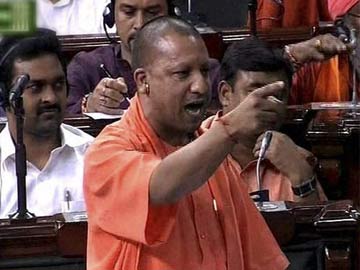 New Delhi: A BJP MP sparked anger in Parliament today as he accused the opposition Congress of working to “Pakistan’s agenda” of dividing the country and asserted that ‘Hinduism’ is a symbol of India’s national identity.
New Delhi: A BJP MP sparked anger in Parliament today as he accused the opposition Congress of working to “Pakistan’s agenda” of dividing the country and asserted that ‘Hinduism’ is a symbol of India’s national identity.
“They split the country on communal lines in 1947 and there is a conspiracy to split the country again on Pakistan’s agenda,” BJP MP Yogi Adityanath said during a discussion in the Lok Sabha on communal violence.
“There is a conspiracy against the Hindu way of life and the people are uniting against this. Hindutva is a symbol of Indian nationalism. The Hindu religion does not allow the superiority of any one religion. Even Muslims who go for Haj are known as Hindus,” he added.
The saffron-robed MP’s words drew sharp protests from the opposition benches
The Congress had earlier targeted the BJP over what it called the spurt in communal violence since the new government took charge.
“Why have there been so many riots in the past 2-3 months? Who is behind these incidents?” questioned Mallikarjun Kharge, the leader of the Congress in the Lok Sabha.
“It is not a coincidence that riots are taking place only in poll-bound states. More than 600 riots have taken place in the last three months and state governments have been blamed,” he added.
Mr Kharge said there were more incidents of communal violence in states where the BJP-led coalition was strong.
“If you are in power, it doesn’t mean you try to suppress people or incite people,” Mr Kharge said, amid protests from the ruling benches.
“We talk of unity, you talk of dividing society,” he added.
Earlier, Union Minister of State for Home Kiren Rijiju had contradicted the Congress’ allegations of 600 riots in three months, saying there had been 308 incidents since January.
The Congress’ demand for a debate on communal violence saw an unusually aggressive Rahul Gandhi join protests at the Well of the house last week. He later said, “only one man’s voice is heard in Parliament,” in what was seen as an allusion to Prime Minister Narendra Modi.
Mr Gandhi was present during the debate but is not listed as a speaker.





